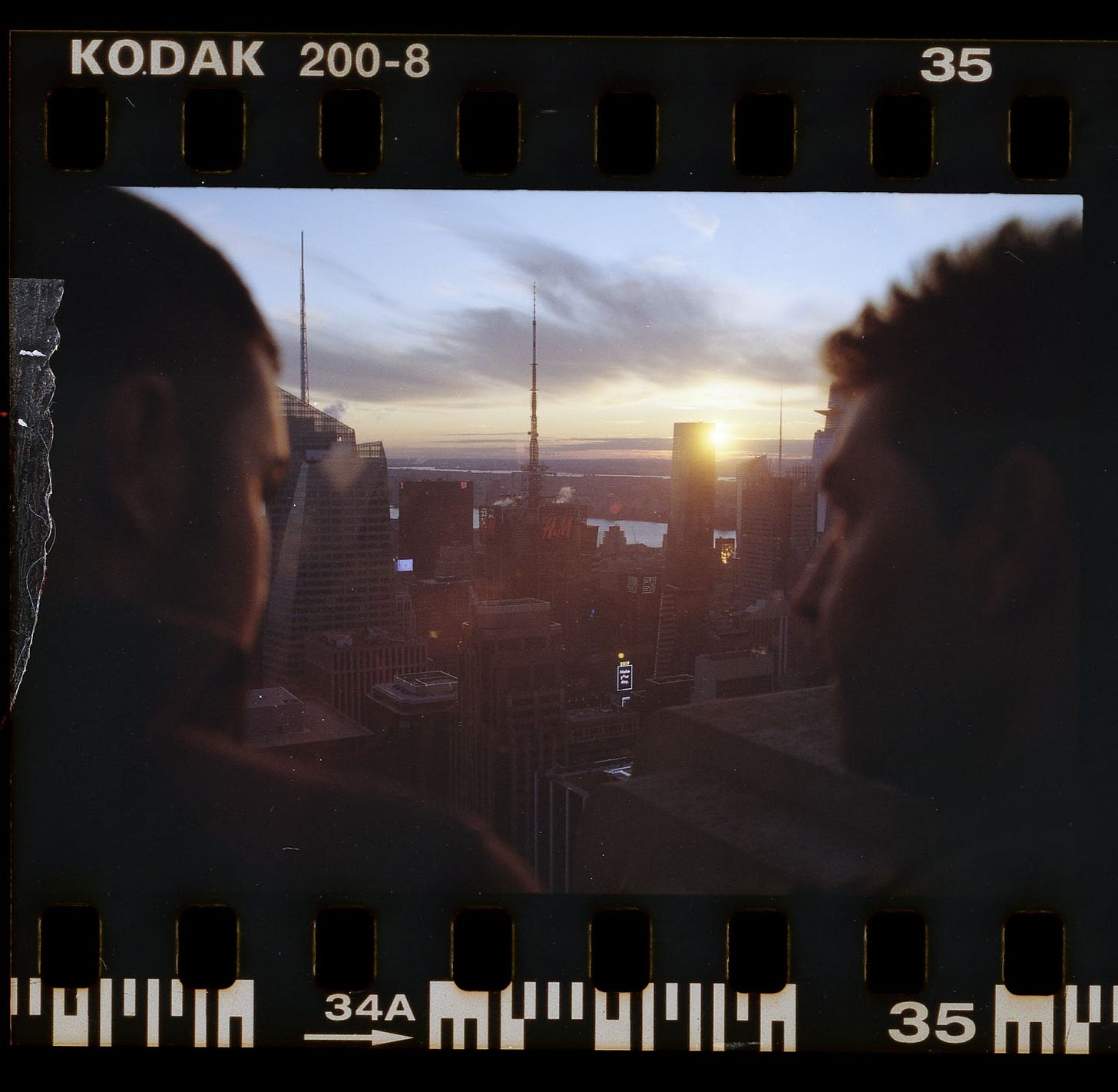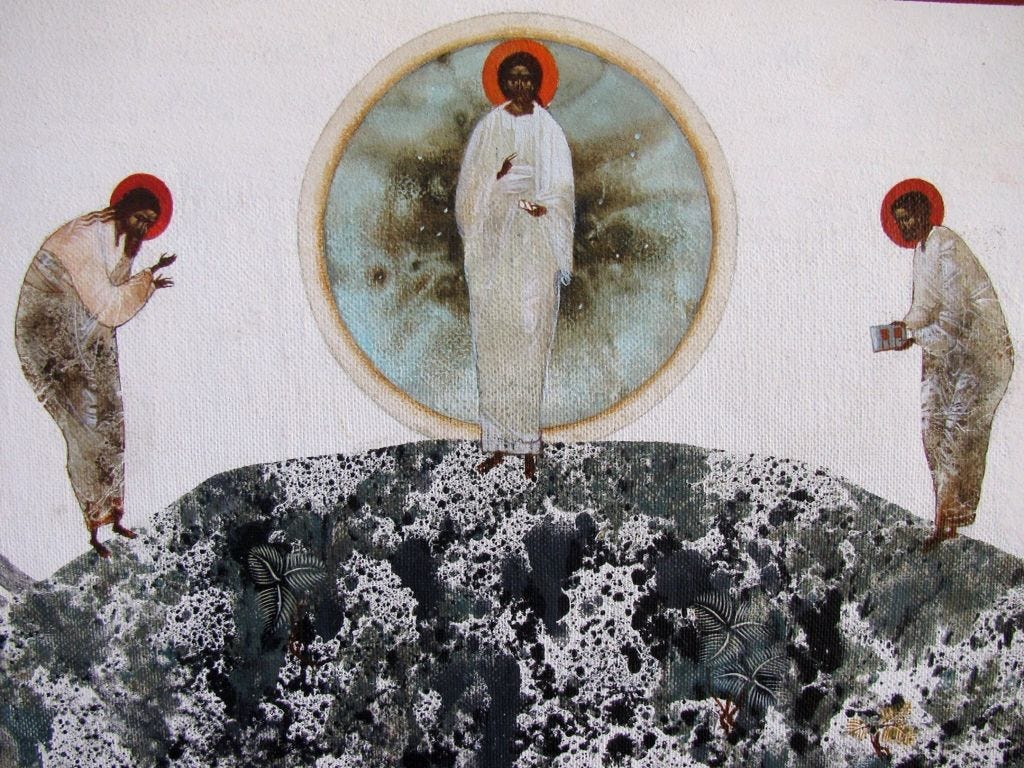The track, All of the Negatives by former indie rock band, Boys Life transports me back to 1996, a unique season of life when I was idealistic, unsure of myself, and naive about the world. As the second track on their album, Departures and Landfalls, its structure is well crafted, with a percussion section that fills out its distinctly Midwestern sound. At about the three minute mark, all the other sections drop out and there's this relative silence for about 20 seconds, after which a steady drum roll builds up to what sounds like an entirely different song, yet functions somewhat like a coda. True to indie rock form, the lyrics are barely discernible, yet I seem to be able to hear, "...a picture...like flashcards to help you study your life..."
Indeed, all of the negatives of a photograph are but the inversion of what makes no sense in the moment, yet what becomes somewhat intelligible via nostalgic retrospection as we reflect on a poignant moment or significant life season. Such hindsight betrays a desire to inhabit a familiar space again with all the emotions that were present, sans the confusion - especially as it concerns romantic relationships, but I digress…While such a hope evades us, we all want to live again in some capacity. Perhaps a fall down memory lane subjectively affords us access to the kind of resurrection life we hope to find as we revisit an old photo album, beholding worn out images and recapitulating faded memories. Yet, such life can only be received by faith, not by striving to relive an irretrievable past.
I'm reminded of the apostle Peter, who at the transfiguration of Christ, instinctively wanted to capture the glory of that Kodak moment when a resplendent Jesus appeared alongside the Old Testament prophets, intimating Israel's glorious past. As Christ’s inner circle (Peter, James, John) beheld the radiant spectacle, Peter insisted they should construct three tabernacles to contain Moses, Elijah, and Jesus, all of whom appeared in the beatific vision. According to the gospel of Matthew, Peter exclaimed,
“Lord, it is good that we are here. If you wish, I will make three tents here, one for you and one for Moses and one for Elijah.”
Matthew 17:4
While commentators differ concerning the implications of his statement, one interpretation plausibly asserts that Peter was thinking of the Jewish Festival of Booths (Sukkot) in which the Israelite community remembered their wilderness sojourning after the exodus from Egypt. During this week long commemoration, it was customary to build temporary tents or ‘sukkahs’ in which to dwell and intimately fellowship with the Lord. This festival, like all the ceremonies mandated under the Mosaic Law, foreshadowed what is ultimately fulfilled in Christ, whom St. John informs us, ‘became flesh and tabernacled among us’ (John 1:14).
The New Testament abounds with warnings not to confuse what is referred to as the type or the shadow of Divine things, with the substance thereof in Christ. We see such admonitions in the Apostle Paul’s letter to the Colossian church, as well as in the anonymously written epistle to the Hebrews. The necessity of such prohibitions underscores the human proclivity to prefer that which is fleeting and evanescent over that which is real and imminent. When we encounter glimpses of the Divine in the midst of our boring, mundane existence, it is endemic to us to want to hold onto the moment for as long as we can. In the book of Ecclesiastes, The Preacher, aka The King of Israel, reminds us of the futility of such a gesture as he opines,
That which has been is what will be, That which is done is what will be done, And there is nothing new under the sun. Is there anything of which it may be said, “See, this is new”? It has already been in ancient times before us. There is no remembrance of former things, Nor will there be any remembrance of things that are to come By those who will come after.
-Ecclesiastes 1:9-11
Despite its maudlin, yet apt assessment of life, Ecclesiastes points us to an even greater Preacher: namely, the Prophet, Priest, and King who condescended to experience our humanity. He is the incarnate Word, who remains with us throughout life's various seasons and unpredictable changes. What He offers exceeds a mere photographic recollection of days long past. Instead, He gives us the remembrance of a righteousness that will never fade away, even as it transforms us ‘from one degree of glory to another’. While camera negatives allude to sentimental snapshots of the good life we may have once enjoyed, the gospel reveals the Christ who is our life, and gives us grace. In His final revelation, He will fulfill what all the pictures, types, and shadows of the Scriptures have always hinted at - an all sufficient grace that satisfies the demands of the law. Instead a fall down memory lane, we will be found one day, in the One who remembers our sins no more. Now, try capturing that in a picture-perfect moment…or better yet, in the cryptic lyrics of an indie rock jam…





